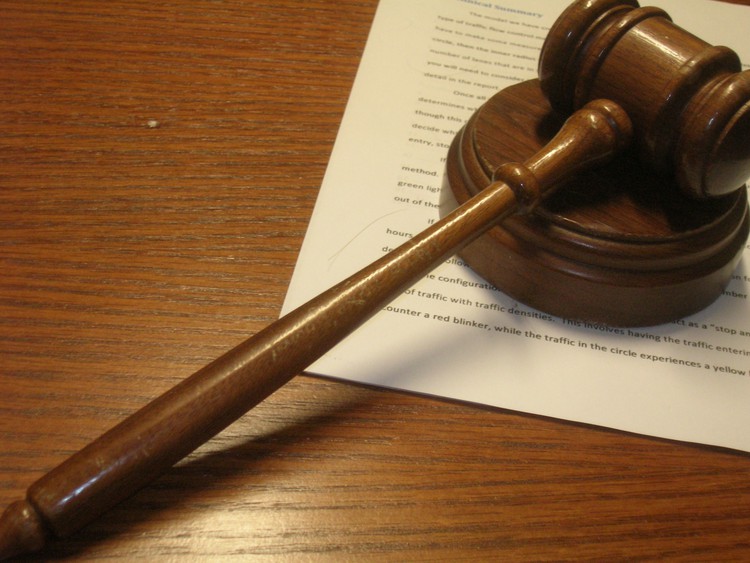
5 August 2025
The Special Tribunal will move from Booysens Magistrates’ Court in Johannesburg to a private office building in Pretoria from 1 September. Photo: Brian Turner via Flickr (CC BY 2.0)
The head of the Special Tribunal, Judge Margaret Victor, was apparently upset that the decision to move the tribunal from Johannesburg to Pretoria, published in the Government Gazette on 29 July, was issued in her name.
Victor was not consulted when the decision to move the Tribunal was initiated as it was before she was appointed in November last year, according to a response to questions by the Department of Justice and Constitutional Development (DOJCD).
She was apparently also insufficiently consulted about the contents of the gazette notice, even though it was issued in her name.
The gazette reads: “the Special Tribunal President has made the following amendment”.
DOJCD spokesperson Kgalalelo Masibi told GroundUp, “The relocation was initiated based on recommendations from the former President of the Tribunal [Judge Lebogang Modiba], with the Department of Public Works and Infrastructure (DPWI) registering the request.”
The minister was briefed and approved the relocation in February 2025, she said.
The decision aligned with the DOJCD’s “broader strategy to improve access to justice, strengthen institutions, and enhance the functionality of key entities like the Special Tribunal”, said Masibi. She claimed that space at the current office had become “increasingly constrained”.
The Centre Walk Building in the Pretoria city centre was identified as a suitable option as it offered “ready-to-occupy space that aligns with the operational and administrative needs of the Tribunal”, said Masibi.
“For physical hearings, any appropriate court, including Booysens, can still be used when necessary”.
The decision to relocate the court from the government-owned Booysens Magistrates’ Court in southern Johannesburg to a privately owned office in a building in the centre of Pretoria has drawn criticism.
Judges Matter legal researcher Mbekezeli Benjamin said, “It is worrying to see the relocation of the Special Tribunal in circumstances that do not seem justified. For the last six years, the Special Tribunal has functioned well at the Booysens Court, where its judges, staff and legal practitioners have had easy access.”
Relocating the Tribunal to Pretoria will “cause enormous inconvenience and be a further blow to its effectiveness”, he said.
Benjamin raised the concern that the Special Tribunal is dependent on DOJCD staff to administer it.
“The fact that such a decision seems to have been taken without sufficient consultation with the Tribunal’s judicial officers and staff underscores the urgency with which the Special Tribunal must now be established as an independent judicial Institution, with its own premises, staff and resources. A failure to do so places the fight against corruption at great risk,” said Benjamin.
Opened in 2019, the Booysens court has ten courtrooms and extensive office and parking facilities. The Tribunal has no problem with court availability for hearings, GroundUp was told.
The Tribunal has three full-time employees: Judge Victor and assistant director Mpho Mashitisho, who both reside in Johannesburg, and a secretary who lives in Pretoria.
The Tribunal’s new Pretoria office will be operational from 1 September, according to the gazette notice. But the office in Booysens has already been reallocated and all the Tribunal’s files moved to Pretoria.
This means that anyone wanting to file in-person complaints will be unable to do so until the new office is operational.
Furthermore, in Pretoria the northern division of the Gauteng High Court serves the entire northern part of the province as well as part of the North West province and has a heavy case load.
Also, the Pretoria central magistrates’ court is still not fully operational after a fire gutted part of the historic building in October 2010, destroying 17 court rooms.
Judge Victor was appointed in November last year. Her appointment came months after the effective collapse of the Tribunal following the resignation of Judge Lebogang Modiba, the former head.
Besides Modiba’s resignation, another Tribunal judge had retired, and the other judges had not been active in hearing matters for some time. This left Modiba to handle the majority of matters before she left in June 2024, resulting in a backlog.
Because of the collapse of the Tribunal, the SIU was forced to take applications for preservation orders to the High Court, where it had to navigate busy court rolls.
President Cyril Ramaphosa eventually appointed Judge Victor and five other judges to hear cases brought before it by the Special Investigating Unit (SIU). The judges are based in different parts of the country and many of their matters are heard virtually.
One of the most effective weapons in the government’s anti-corruption arsenal, the Tribunal was established to hear applications by the Special Investigating Unit (SIU) to freeze and confiscate the proceeds of corruption, including money, properties and vehicles. The Tribunal has been based in the Booysens Court since its inception.
The Tribunal is central to the work of the SIU and was established to ensure the unit could swiftly apply for preservation orders without having to navigate busy court rolls to get matters before the High Court.
The partnership between the SIU and the Special Tribunal is both symbiotic and statutory: the SIU investigates and initiates civil action; the Special Tribunal decides and enforces remedies.